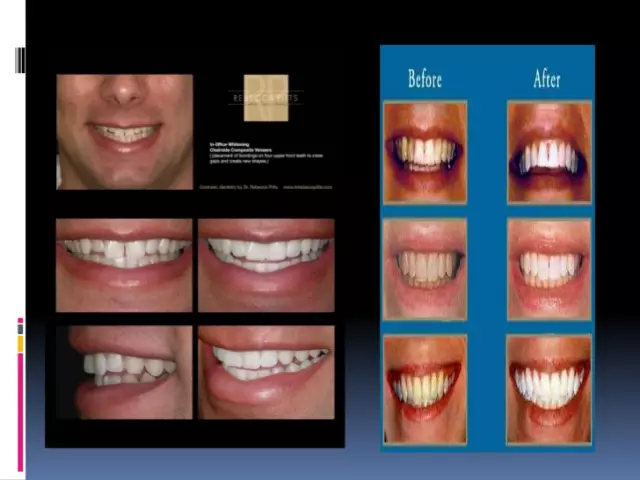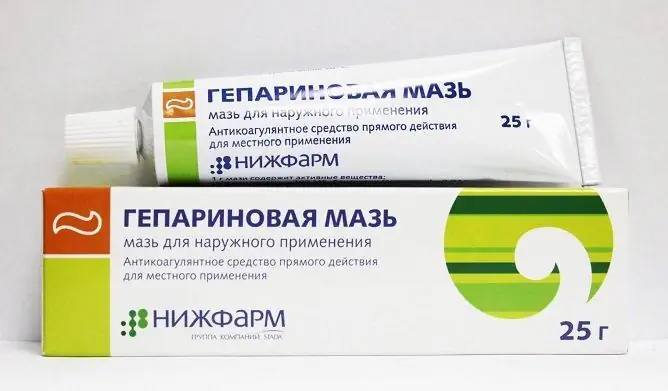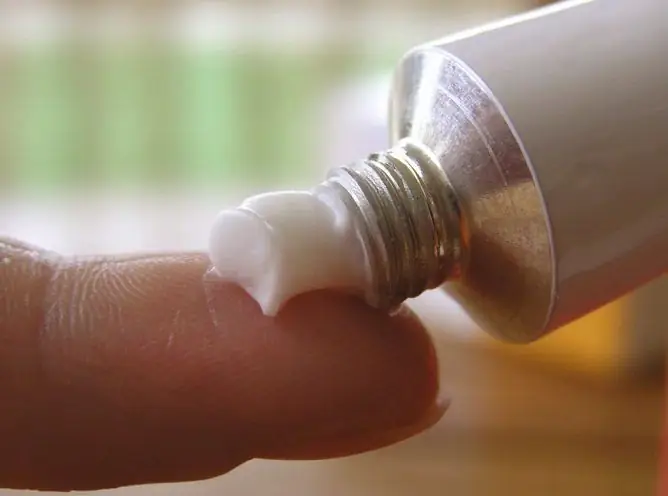- Author Rachel Wainwright wainwright@abchealthonline.com.
- Public 2023-12-15 07:39.
- Last modified 2025-11-02 20:14.
Triderm
Triderm: instructions for use and reviews
- 1. Release form and composition
- 2. Pharmacological properties
- 3. Indications for use
- 4. Contraindications
- 5. Method of application and dosage
- 6. Side effects
- 7. Overdose
- 8. Special instructions
- 9. Application during pregnancy and lactation
- 10. Use in childhood
- 11. Drug interactions
- 12. Analogs
- 13. Terms and conditions of storage
- 14. Terms of dispensing from pharmacies
- 15. Reviews
- 16. Price in pharmacies
Latin name: Triderm
ATX code: D07XC01
Active ingredient: Clotrimazole + Gentamicin + Betamethasone (Clotrimazole + Gentamicin + Betamethasone)
Producer: Schering-Plow Labo NV (Belgium), Schering-Plow (Portugal)
Description and photo update: 2018-25-10
Prices in pharmacies: from 630 rubles.
Buy

Triderm is a combined agent for external use, which has an antibacterial and glucocorticoid effect.
Release form and composition
- cream for external use: homogeneous soft consistency, no visible particles, almost white or white (15 and 30 g in aluminum tubes, each tube is placed in a cardboard box);
- ointment for external use: a homogeneous soft consistency, without foreign inclusions, translucent, from white to light yellow (15 and 30 g in aluminum tubes, each tube is placed in a cardboard box).
The active ingredients in 1 g of cream and 1 g of ointment:
- clotrimazole - 10 mg;
- gentamicin - 1 mg (1000 IU);
- betamethasone dipropionate - 0.643 mg, which is equivalent to the content of betamethasone - 0.5 mg.
Auxiliary components of the cream: benzyl alcohol, cetostearyl alcohol, sodium dihydrogen phosphate dihydrate, propylene glycol, phosphoric acid, liquid paraffin, petroleum jelly, macrogol cetostearate, purified water, phosphoric acid or sodium hydroxide.
Auxiliary components of the ointment: soft white paraffin, liquid paraffin.
Pharmacological properties
Triderm produces anti-inflammatory, anti-allergic, anti-exudative, antipruritic, antifungal and antibacterial effects.
Pharmacodynamics
The effect of the cream and ointment is due to the properties of the active substances included in their composition.
Clotrimazole is an antifungal agent, the mechanism of action of which is explained by its ability to disrupt the synthesis of ergosterol, the main constituent of the cell membrane of the fungus. Active against Candida albicans, Epidermophyton floccosum, Trichophyton rubrum, Microsporum canis, Trichophyton mentagrophytes, Malassezia furfur (Pityrosporum orbiculare).
Gentamicin is a broad-spectrum antibiotic belonging to the aminoglycoside group. It has a bactericidal effect, provides highly effective local treatment of primary and secondary bacterial skin infections. Gram-negative bacteria Escherichia coli, Enterobacter aerogenes, Klebsiella pneumoniae, Proteus vulgaris and Pseudomonas aeruginosa, gram-positive bacteria Staphylococcus aureus (coagulase-negative, coagulase-positive, some strains that produce penicillinase) are susceptible to it.
Betamethasone dipropionate is a glucocorticosteroid with antiallergic, antipruritic, anti-inflammatory and antiexudative action.
Indications for use
Triderm is used to treat dermatoses complicated by infections caused by pathogens that are sensitive to its active ingredients, as well as if such infections are suspected. In particular, the drug is prescribed in the following cases:
- eczema;
- atopic dermatitis (including diffuse neurodermatitis);
- simple and allergic dermatitis;
- simple chronic lichen (limited neurodermatitis);
- dermatomycosis (versicolor versicolor, candidiasis, dermatophytosis), especially when localized in large folds of the skin and groin.
Contraindications
Absolute:
- herpes simplex;
- chicken pox;
- open wounds (for ointment);
- lupus;
- cutaneous manifestations of syphilis;
- post-vaccination skin reactions;
- children under 2 years old;
- hypersensitivity to Triderm components.
Relative (in the following cases, the drug should be used with extreme caution, under close medical supervision):
- children over 2 years old;
- pregnancy (especially the first trimester);
- violation of the integrity of the skin in the intended place of application of the ointment / cream;
- application on large areas of the skin;
- the use of occlusive dressings (especially in children);
- long-term treatment.
Instructions for the use of Triderm: method and dosage
Triderm cream and ointment are applied externally.
The agent should be applied in a thin layer to the affected areas of the body and surrounding tissues 2 times a day - in the morning and at night.
The duration of treatment is determined individually, depending on the location and size of the lesion, as well as the effectiveness of therapy.
If after 3-4 weeks of regular use of Triderm there is no improvement, you should consult a doctor to clarify the diagnosis.
Side effects
Triderm is generally well tolerated. In rare cases, there is a burning sensation at the site of application of the drug, exudation, itching, erythema, pigmentation disorders.
Possible side effects due to the action of each of the active substances:
- betamethasone (especially when applied under an occlusive dressing): hypopigmentation, folliculitis, burning sensation, perioral dermatitis, prickly heat, skin maceration, itching, striae, acne, dry skin, skin atrophy, allergic contact dermatitis, hypertrichosis, development of a secondary infection;
- clotrimazole: peeling, tingling sensation, skin irritation, urticaria, local edema, erythema, pruritus, blistering;
- gentamicin: transient skin irritation (pruritus, erythema), usually not requiring discontinuation of treatment.
Overdose
Long-term use of betamethasone in high doses can cause such a systemic side effect as suppression of adrenal function, which may be accompanied by the development of symptoms of hypercortisolism (including Cushing's syndrome) and secondary adrenal insufficiency.
Clotrimazole, when applied topically, does not cause any negative symptoms.
With a single overdose, gentamicin also does not contribute to the appearance of negative symptoms. With long-term treatment with the drug in high doses, the growth of insensitive flora is possible.
In case of an overdose of Triderm, symptomatic treatment is performed. If necessary, correct electrolyte imbalance. Acute symptoms of hypercortisolism are usually reversible. With chronic toxicity of glucocorticosteroids, it is recommended to gradually withdraw the drug.
special instructions
Triderm cream and ointment are not intended for the treatment of ophthalmic diseases.
With prolonged local use of antibiotics, the growth of resistant microflora is possible. In this case, as well as with the development of sensitization, irritation or superinfection, the drug should be discontinued and appropriate therapy should be carried out.
There are isolated cases of the development of cross-allergic reactions with aminoglycoside antibiotics.
Systemic absorption of gentamicin and betamethasone is increased when a cream / ointment is applied to large areas of the body, when using occlusive dressings, in violation of the integrity of the skin and long-term treatment. Do not apply the drug to damaged skin and open wounds, as there is a risk of systemic side effects. Precautions must be taken in such cases, especially when treating children.
After prolonged therapy, Triderm is recommended to be canceled gradually.
Influence on the ability to drive vehicles and complex mechanisms
Triderm components do not have a negative effect on the speed of the patient's psychomotor reactions and his ability to concentrate.
Application during pregnancy and lactation
During pregnancy, Triderm can be used in individual cases, when the expected benefit outweighs the potential risks. At the same time, it is forbidden to apply the drug to large areas of the skin and use it for long-term treatment.
It is not known whether Triderm's active substances are excreted in breast milk when applied externally, therefore it is recommended to stop breastfeeding if therapy is required during lactation.
Pediatric use
According to the instructions, Triderm is contraindicated in children under 2 years of age. For children over 2 years old, it is prescribed only on strict indications, treatment is carried out under the close supervision of a doctor, since in childhood there is a higher risk of developing systemic side effects associated with betamethasone. When corticosteroids are used on large areas of the body and / or under an occlusive dressing, the following effects may develop: suppression of the function of the hypothalamic-pituitary-adrenal system, Cushing's syndrome, slowing down of weight gain, decreased excretion of growth hormone (growth retardation), as well as increased intracranial pressure manifested by headache, bulging fontanelles, bilateral edema of the optic nerve head.
Drug interactions
Cases of negative interaction of Triderm with its simultaneous use with other drugs are unknown.
Analogs
Analogs of Triderm are: Kanizon, Akriderm GK, Betasalik, Diprosalik, Lokoid, Betazon Ultra, Triakutan.
Terms and conditions of storage
Keep out of the reach of children. Do not exceed a temperature of 25 ° C.
The shelf life of the ointment is 2 years, the cream is 3 years.
Terms of dispensing from pharmacies
Available without a prescription.
Reviews about Triderm
According to reviews, Triderm is an effective potent agent for the treatment of bacterial and fungal skin diseases caused by microorganisms that are sensitive to it.
The main disadvantage of the drug is the risk of serious side effects, which requires special care when using the ointment / cream, especially for the treatment of children.
Price for Triderm in pharmacies
The price of Triderm in the form of an ointment is 655-735 rubles. for 1 tube, in the form of a cream - about 760 rubles. for 1 tube.
Triderm: prices in online pharmacies
|
Drug name Price Pharmacy |
|
Triderm 0.05% + 0.1% + 1% cream for external use 15 g 1 pc. 630 RUB Buy |
|
Triderm 0.5 mg / g + 1 mg / g + 10 mg / g ointment for external use 15 g 1 pc. RUB 633 Buy |
|
Triderm ointment 15g RUB 679 Buy |
|
Triderm cream 15g RUB 680 Buy |

Maria Kulkes Medical journalist About the author
Education: First Moscow State Medical University named after I. M. Sechenov, specialty "General Medicine".
Information about the drug is generalized, provided for informational purposes only and does not replace the official instructions. Self-medication is hazardous to health!






